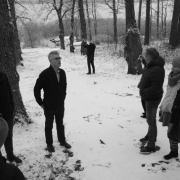RELOCAL – Resituating the Local in Cohesion and Territorial Development, EU and neighbourhood countries, 2020
Client: European Commission Horizon 2020 Programme
Partners: University Eastern Finland, ILS Germany, University Newcastle, Stockholm University, Nordregio, James Hutton Institute, Hungarian Academy of Sciences, DELFT University, University of Luxemburg, University of Lodz, Desire Foundation, University of Thessaly
EU Horizon 2020 research project ‘Resituating the local in cohesion and territorial development’ – RELOCAL aims to identify factors that condition local accessibility of European policies, local abilities to articulate needs and equality claims and local capacities for exploiting European opportunity structures. It is based on case studies of local contexts (cities and their regions) that exemplify development challenges in terms of spatial justice. Case study locations will thus be chosen to allow for a balanced representation of different institutional contexts.





